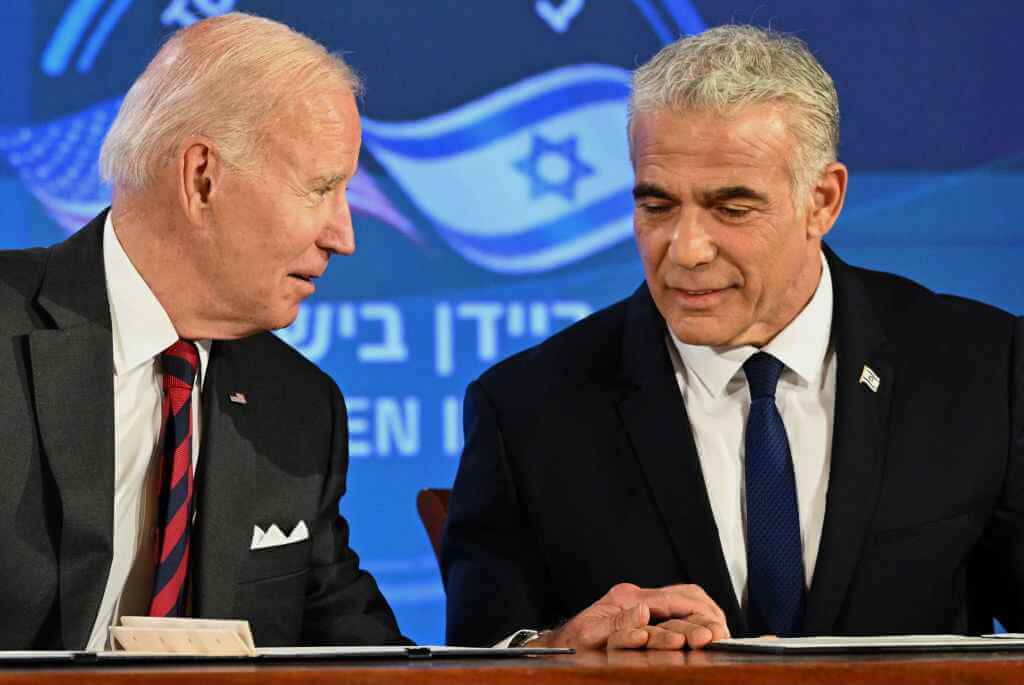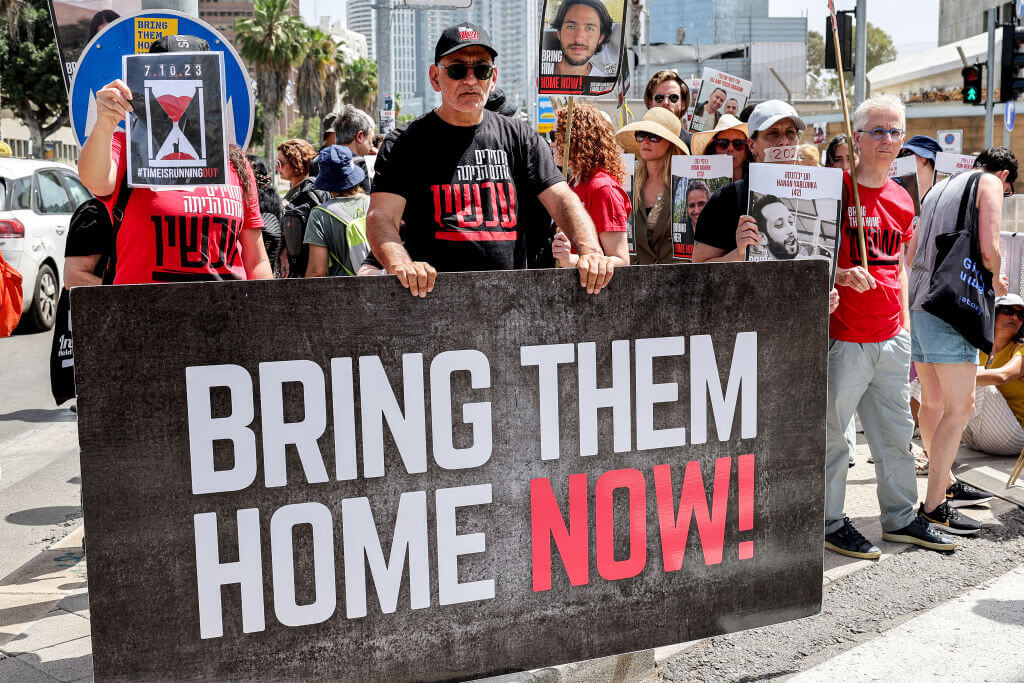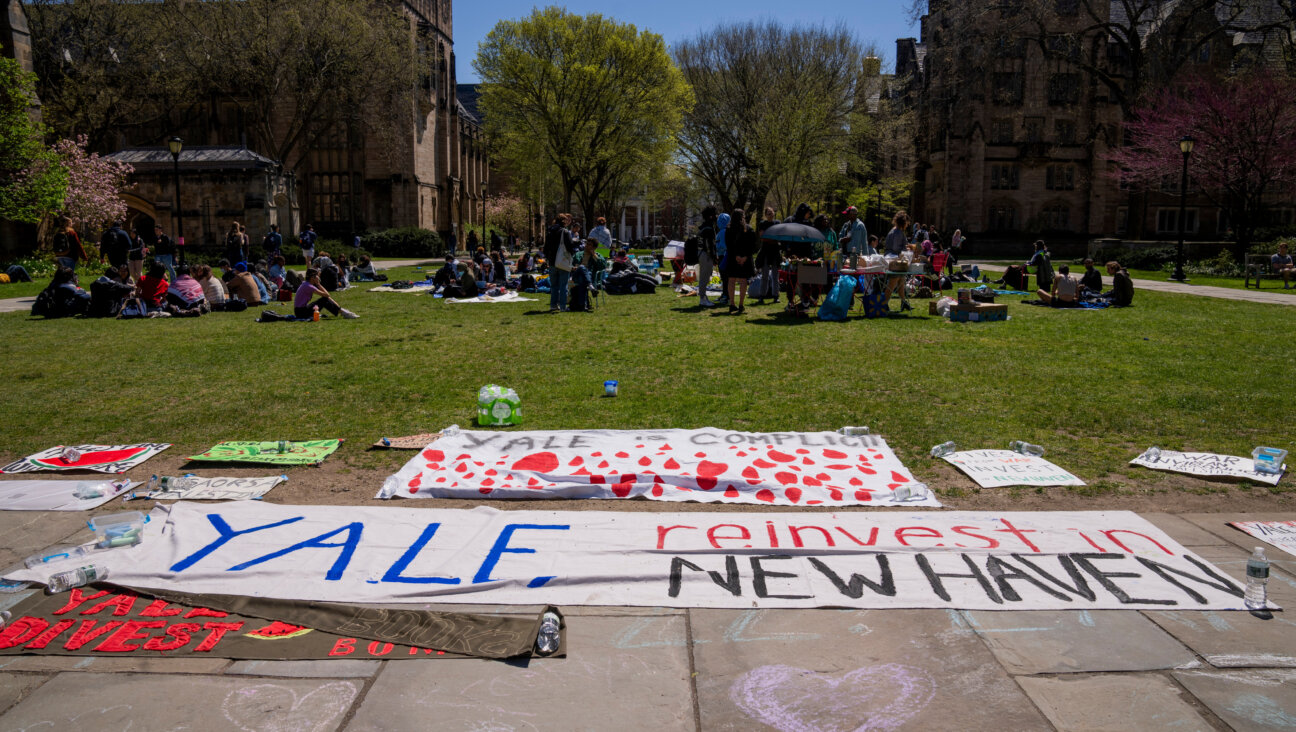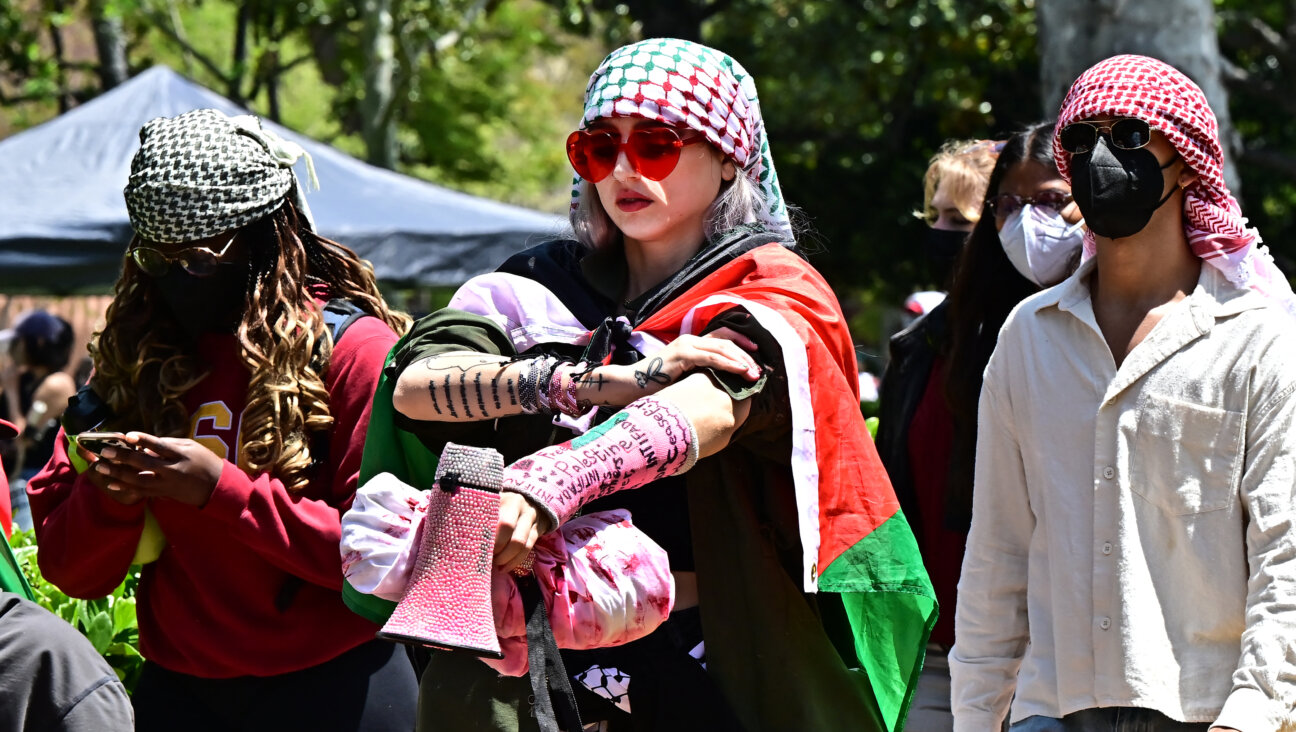2 Israeli civilians and 3 Lebanese attackers killed in escalating fighting on Israel’s northern border
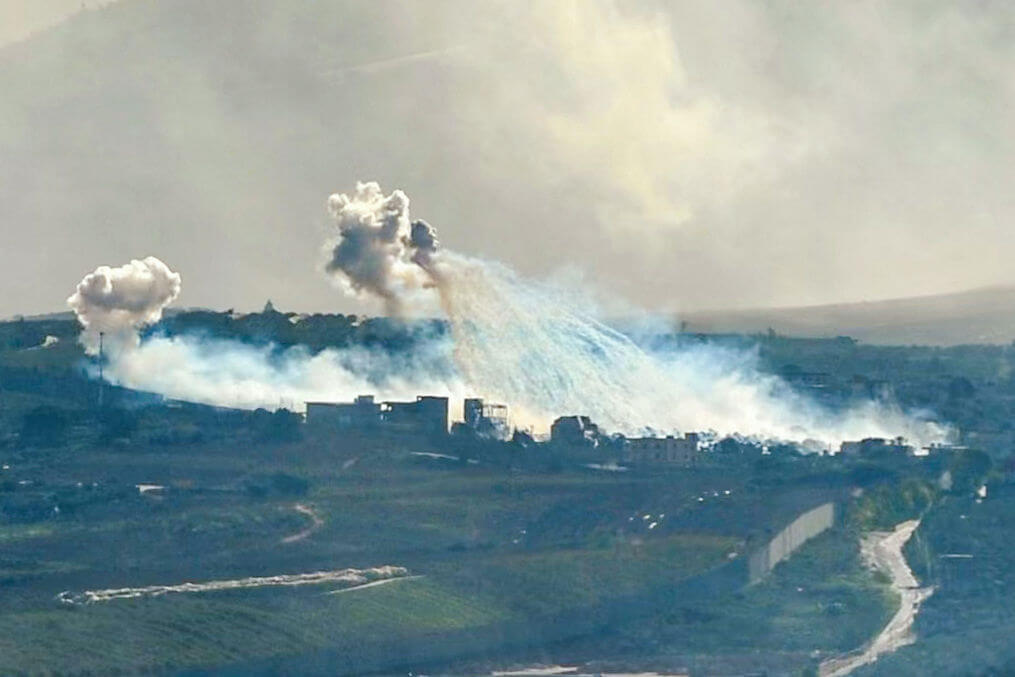
Smoke billows near the Israel-Lebanon border during Israeli shelling on on January 14, 2024, amid ongoing cross-border tensions. Photo by Rabih Daher/AFP/Getty Images
(JTA) — A man and his elderly mother were killed on Sunday when an anti-tank missile fired by Hezbollah struck their home, as tensions on Israel’s northern border with Lebanon continue to rise.
Hours earlier, Israeli forces killed three Lebanese militants who attempted to infiltrate Israel. Five Israeli soldiers were lightly injured during the fighting with the militants, who were affiliated with a terror group separate from Hezbollah, and the military temporarily closed roads and village entrances in the area in response.
The clashes have come as fears have grown of war between Israel and Hezbollah. The terror group began firing rockets at Israel following Hamas’ Oct. 7 invasion across the country’s southern border, and exchanges of fire have continued, creating the potential for a broader war in Israel’s north even as it has focused its firepower on its invasion of Gaza.
Several more anti-tank missiles struck various border communities in northern Israel on Sunday, but resulted in no injuries. Israel bombed two Hezbollah targets in response.
The deaths of Mira Ayalon, 76, and her son Barak, 45, in Sunday’s Hezbollah strike bring the total number of Israelis killed in the northern cross-border clashes to 15, nine of them soldiers, since October 7. Barak Ayalon was a member of his town’s civilian defense patrol. Mira Ayalon, in an interview with Israeli Channel 12, said she was “living in tension” and noted that her house was visible from Lebanon.
Some 200 people have been killed in Lebanon, most of them fighters from Hezbollah. Tens of thousands of people have evacuated their homes due to the violence.
In addition to the tensions between Israel and Lebanon, the United States recently bombed the Houthis, a Yemeni terror group that has shot missiles at commercial ships and at Israel in the wake of Oct. 7. American diplomats have worked to prevent the Israel-Hezbollah hostiles from ramping up.
Before returning to the United States from a recent trip to the Middle East, Secretary of State Antony Blinken told members of the press, “We want to make sure that through diplomacy we can create enough security and a strong sense of security. No one wants to see escalation there — Israel doesn’t, Lebanon doesn’t, and I actually don’t think Hezbollah does.”
Leaders of both Israel and Hezbollah appear to be anticipating the possibility of a wider war. Last week, Israeli Prime Minister Benjamin Netanyahu said Hezbollah was “making a mistake with us” by firing missiles at Israel.
“We will do everything to return security to the residents of the north,” he said to a group of soldiers, according to video posted to social media. “We also prefer, of course, that this will not be a broader campaign, but that’s their decision.”
In a speech on Sunday, Hezbollah leader Hassan Nasrallah said his group “is causing losses to Israel.”
“The one who needs to fear from a war is Israel and the Israelis, and not Lebanon,” he said. “We have been preparing already 99 days for war and are not afraid of it. We will fight without any conditions.”
A recent poll by the Israel Democracy Institute found that Israelis are split regarding whether Israel should open a second front with Lebanon, with 51% in support and 34% against.
This article originally appeared on JTA.org.

I hope you appreciated this article. Before you go, I’d like to ask you to please support the Forward’s award-winning journalism this Passover.
In this age of misinformation, our work is needed like never before. We report on the news that matters most to American Jews, driven by truth, not ideology.
At a time when newsrooms are closing or cutting back, the Forward has removed its paywall. That means for the first time in our 126-year history, Forward journalism is free to everyone, everywhere. With an ongoing war, rising antisemitism, and a flood of disinformation that may affect the upcoming election, we believe that free and open access to Jewish journalism is imperative.
Readers like you make it all possible. Right now, we’re in the middle of our Passover Pledge Drive and we still need 300 people to step up and make a gift to sustain our trustworthy, independent journalism.
Make a gift of any size and become a Forward member today. You’ll support our mission to tell the American Jewish story fully and fairly.
— Rachel Fishman Feddersen, Publisher and CEO
Join our mission to tell the Jewish story fully and fairly.
Only 300 more gifts needed by April 30









